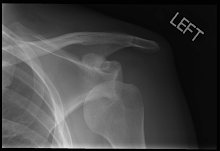EXCLUSIVE: Windows Media DRM 10 Crack Updates. It Is Real!: "Windows Media DRM 10 has been cracked"
Some would say it's inevitable... I currently include myself in "some".
Zarkon said "how has the old business model hindered users?"
Well, the old system actually wasn't too bad. It's when the old system tries to change into the new system. As I see it, the old system hide a complex twist in intellectual property. In the old system, musicians were compensated because there was a piece of physical media tied to their work. That media clearly cost money to produce, and hence it was easy to add a hidden "tax" to the price of the media that went to compensating the artist.
So what's wrong with the old system? The internet. For 24 dollars a month I can buy a hosting plan from speakeasy that gives me 1 gig of storage online and unlimited throughput... which means, speakeasy will allow me to distribute unlimited copies of 200 of my songs for a flat fee of 24 dollars per month. What is $24 divided by infinity? That's my per cost distribution fee.
(There are caveats here of course, since large scale music distribution costs more in hardware and hosting fees than I have laid out, this is used as an example of how music distribution costs have dropped and are dropping)
So, since bits are easy to copy, where do you hide the artist tax? The old school thinkers out there are proposing to add the tax in by making it impossible for you to copy the song (using DRM or Digital Rights Management). If you can't copy it, then they can charge you for additional copies. Oh... about $0.99 per copy. It would be fascinating to look at Apple's budget for the iTunes music store. I bet you 70%-90% of their costs go to the record labels for licensing fees.
So... here's where my plan comes in.... instead of taking that 70%-90% and giving to the record labels (who now are not involved in the distribution, only marketing and production), find a way to give as much of it as possible to the artists. After all, they're the irreplacable ones.
So, returning to the question, how has it hindered users? It's the DRM. When you look into how DRM works, you'll discover that it's designed to control what you can do with the digital copy of the file. For example, in certain configurations, music ripped to your machine with Windows Media Player will not play on another computer. That sounds good right? Until you buy a new computer, move your files over, and then you can't play them. So you have to go looking around to try and find why you can't play your songs.
Why DRM is bad is a big topic. Here are a good link for your reading pleasure until I have time to address the issue more fully.
Cory Doctorow on DRM
Subscribe to:
Post Comments (Atom)

1 comment:
I'll be looking forward to your article on DRM, but in relation to the WM10 being cracked, it is and always will be inevitable. If it is possible to hear the music, it is possible to copy it. You can have the best DRM in the world, but you can simply record whatever is going through your soundcard -- even though this may be considered a last-ditch effort by many crackers who don't want to have to listen to the entire song to copy it. In any case, if it can be retrived by the playing software (i.e. windows media player) it can be retrived and copied with varied degrees of success.
Post a Comment